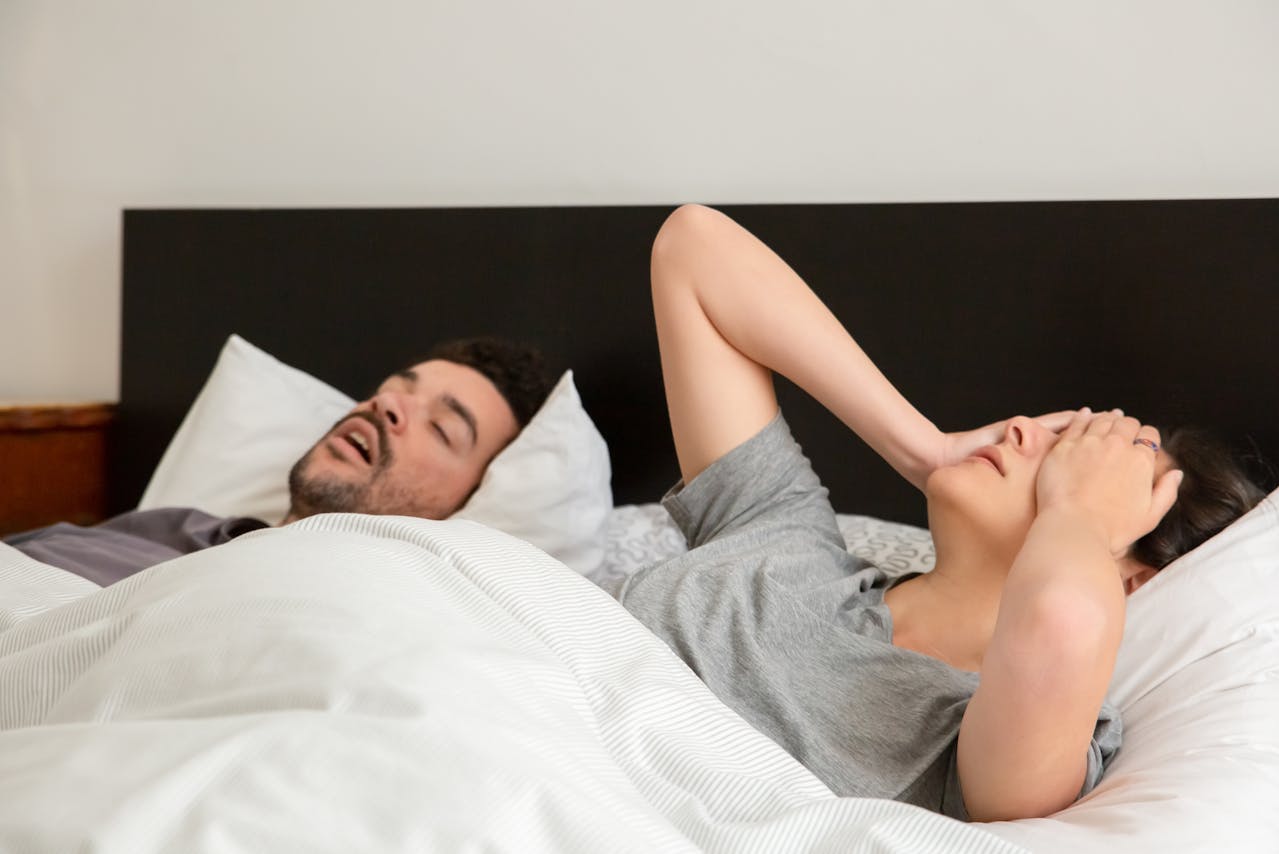
Sleep apnea is often thought of as a men’s health issue, but it affects women too—sometimes in subtler ways. Many women spot the signs of sleep apnea in themselves or their partners before men do. This matters because untreated sleep apnea can harm your heart, mood, and daily energy. Recognizing sleep apnea symptoms early can mean faster treatment and better sleep for everyone. Knowing what to look for is the first step toward healthier nights and brighter days.
Women’s sleep apnea symptoms can be different from men’s, and they often notice changes in their own bodies that men might overlook. Here are six sleep apnea symptoms that women tend to recognize before men, along with practical tips for what to do next.
1. Persistent Fatigue Despite a Full Night’s Sleep
Feeling tired all day, even after what seems like a full night’s rest, is one of the most common sleep apnea symptoms. Women may be more attuned to changes in their energy levels, especially when fatigue lingers. If you’re dragging through the day, needing more coffee than usual, or feeling like naps never help, it could be a red flag.
Sleep apnea disrupts your sleep cycles, making restful sleep nearly impossible. Over time, this kind of fatigue can impact your work, mood, and ability to care for your family. Women often seek help for persistent tiredness sooner than men, which can lead to an earlier diagnosis and treatment.
2. Morning Headaches
Waking up with a headache isn’t just a bad way to start the day—it can be a sign of sleep apnea. These headaches are usually dull and located at the front of the head. Women often notice and report these symptoms before men, perhaps because they are more likely to track their health and share concerns with their doctors.
Morning headaches can occur because sleep apnea reduces oxygen levels overnight. If you notice this pattern, especially when paired with other sleep apnea symptoms, it’s worth mentioning to your healthcare provider.
3. Mood Changes and Irritability
Sleep apnea doesn’t just steal your energy; it can also affect your mood. Women are often quick to notice increased irritability, anxiety, or even mild depression. These emotional changes can sneak up slowly but often become obvious over time.
Because women are generally more open to discussing mental health, they may recognize and act on these sleep apnea symptoms sooner. Addressing mood changes early can prevent bigger issues down the road and help restore a sense of balance.
4. Difficulty Concentrating or Forgetfulness
Struggling to focus or remember things? Cognitive symptoms like forgetfulness and trouble concentrating are common with sleep apnea. Women may spot these changes in themselves, especially when they start affecting work performance or daily routines.
It’s easy to blame brain fog on stress or a busy life, but if it persists, sleep apnea could be the cause. Noticing these symptoms early can help you get the right diagnosis and improve your quality of life.
5. Insomnia or Restless Sleep
Many people think sleep apnea only means loud snoring, but women often experience different symptoms, like insomnia or frequent awakenings. If you find yourself tossing and turning, waking up gasping, or unable to fall back asleep after waking, these could be sleep apnea symptoms.
Women are more likely to report these sleep disturbances and seek help. If you’re struggling with restless nights, keeping a sleep journal can help you spot patterns and share them with your doctor.
6. Subtle Breathing Changes at Night
While men are more likely to snore loudly, women with sleep apnea may have subtler breathing issues. You might notice shallow breathing, brief pauses, or even choking sensations during sleep. Sometimes, these symptoms are so mild that only a bed partner notices them.
Women are often more aware of these small changes, especially if they share a bed or wake up feeling short of breath. Monitoring your breathing or asking your partner to watch for unusual patterns can help catch sleep apnea symptoms early.
Taking Action for Better Sleep Health
Recognizing sleep apnea symptoms early is key for both women and men. If you notice any of these signs in yourself or a loved one, don’t ignore them. Start by talking to your healthcare provider. They may suggest a sleep study or other tests to confirm the diagnosis. Treating sleep apnea can improve your energy, mood, and long-term health.
There are many treatment options available, from lifestyle changes to devices like CPAP machines. Addressing sleep apnea symptoms head-on can make a huge difference in your daily life and overall well-being.
Have you or someone you know noticed any of these sleep apnea symptoms? Share your experiences or questions in the comments below!
What to Read Next…
- Mens Health: 8 Health Issues Wives Need To Be On Alert For Because Men Won’t Pay Attention
- 7 Health Threats That You Continue To Ignore Even Though Your Wife Is Begging You To Seek Treatment
- 6 Mens Health Screenings You Shouldn’t Ignore
- 6 Times Women Must Be Empathetic To The Tears Of Their Spouse
- 7 Health Devices That Are Now Being Recalled Across The U S
The post 6 Sleep Apnea Symptoms That Women Notice Before Men Do appeared first on Clever Dude Personal Finance & Money.







